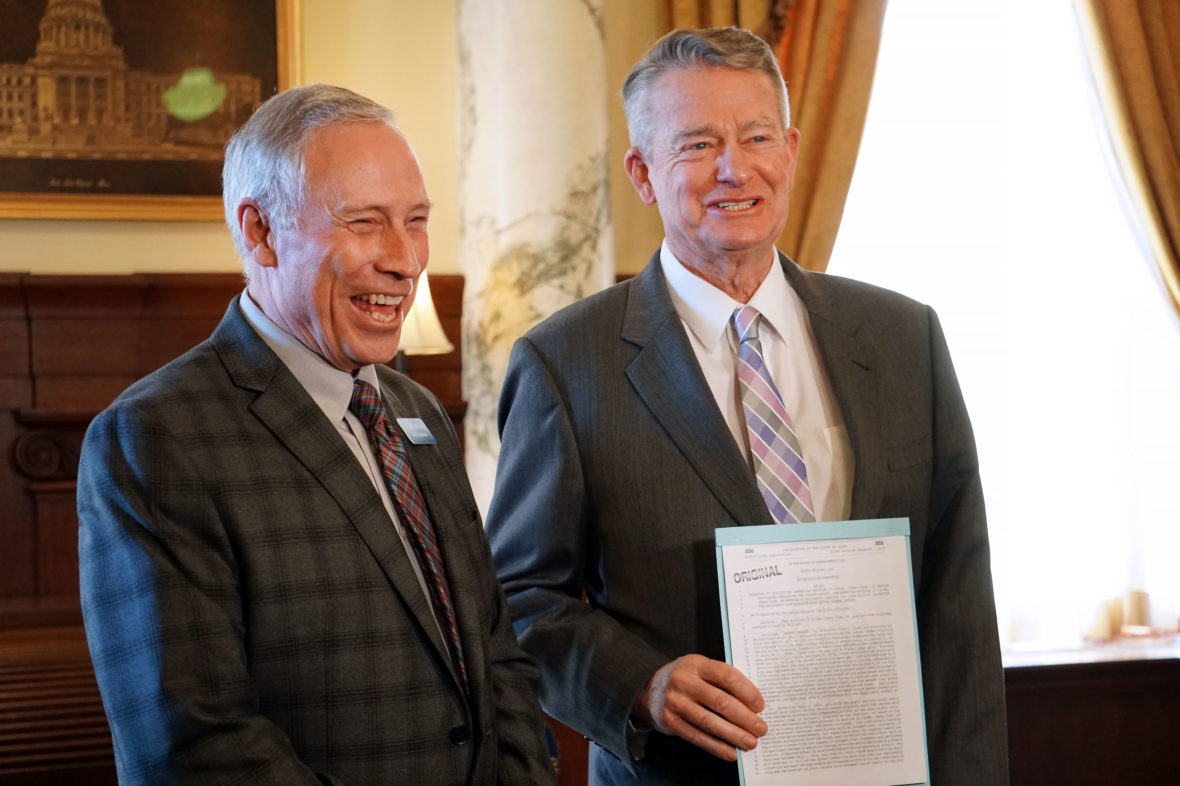Little signs teacher salary increase into law
Published at | Updated at
BOISE — Idaho’s minimum teacher salary will increase to $40,000 in 2020-21, thanks to a bill Gov. Brad Little signed Wednesday afternoon.
Shortly before 3:15 p.m., Little signed House Bill 153 into law. Little made increasing teacher salaries a campaign promise last year, and pushed for it in his first State of the State address in January.
“This bill is part of my overarching goal making sure our kids in Idaho stay in Idaho,” Little said. “We’ve got a long ways to go, but this is a good start right here.”
Idaho’s current minimum teacher salary is set at $35,800. Under the new law, the minimum salary will increase to $38,500 next year and $40,000 the following year. Little also included funding to increase pay within the second and third “rungs” on the career ladder so teacher pay won’t decrease after their first year.
Salaries and benefits are negotiated locally each year, but state law sets the minimum salary for all public school and charter teachers.
Several teachers and education advocates, legislators and Superintendent of Public Instruction Sherri Ybarra surrounded Little as he signed the bill.

Jessie Spurgeon, who teaches at Boise’s Koelsch Elementary School, thanked Little and the Legislature for investing in recruiting new educators.
“This is an important day for professional educators across Idaho,” she said.
Like Little, Spurgeon called it a good first step. Now in her seventh year of teaching, Spurgeon won’t directly benefit from the new law. She encouraged Little and the Legislature to invest in pay increases for veteran teachers, who often mentor and support beginning educators.
Sam Stafford, who teaches at Boise’s Borah High School, also welcomed news of the higher minimum salary. In fact, he said the issue of recruitment and retention hits close to home for him and his colleagues. Stafford worked with a gifted computer science student teacher who loved the subject and loved working with kids. But he ultimately took an industry position because he couldn’t support his family on the starting salary that was offered a year or two ago.
Passing the new law sends a positive message to prospective educators and will make a difference for their bottom lines, Stafford predicted.
“It’s a wonderful profession,” he said. “Knowing that the Legislature is supportive makes a big difference.”
It will cost the state about $3.8 million to implement the minimum salary increase in 2019-20 and another $7.7 million in 2020-21.
This story was originally posted on IdahoEdNews.org on March 20, 2019. It is used here with permission.



